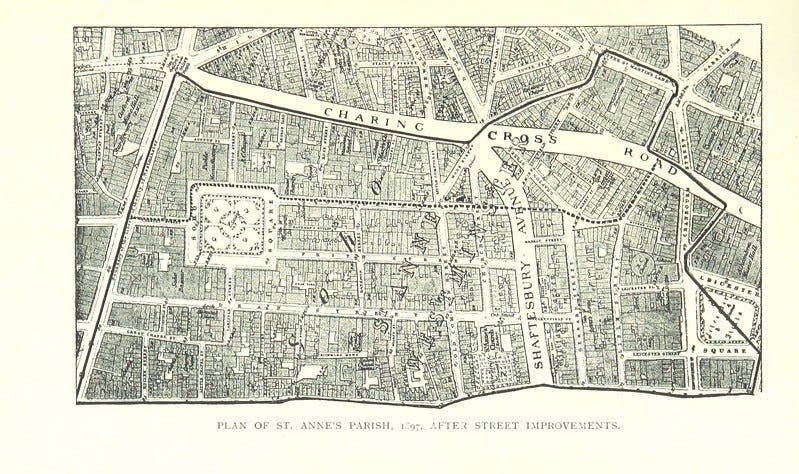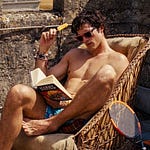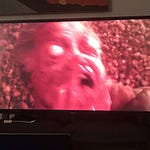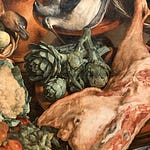
It’s cold, and I am still ill, and I find myself in bed with the shutters drawn, the fingers of crisp mediterranean sunlight creeping through the thin louvres of wood matched by the fingers of the rude wind that is trying to peel them back, to slam open the shutters and the windows, to fill the room with a bracing cold air. I shudder at it. Leave me alone. The wind is like this all day; powerful and gusty. I hear a terracotta pot scrape across some distant balcony before it falls 2, 4, 5 storeys to the pavement below and shatters. I hope there are no passing dogs caught in the calamity.
On my laptop, resting on my bed, I half-listened to Desert Island Discs, and found myself unexpectedly moved by Russell T Davies discussing the impact his drama Queer as Folk had when it was released, twenty years ago this year. “When I wrote that an out gay teenager was a miracle. They barely existed”. I think he’s right, but I never saw it at the time. Queer as Folk, along with George Michael, was the touchstone insult when I came out, a year or two later, and as a result I didn’t watch it. I feared I would hate what was staring back at me, a representation of a gayness that fuelled those insults. I guess it didn’t occur to me that most of those insulting me hadn’t watched it either — didn’t need to. The title was condemnation enough. As a result I deprived myself of one of the few mainstream representations of gay life that existed at the time.
I wonder now how I might go about representing that slim decade between the first really effective combination therapies for HIV made it a manageable condition in the UK, and the growth of mainstream acceptance of gay men in the public eye - that is, mid-90s to mid-00s. It’s not a time I think about. Too painful. School, family, isolation, alienation, loss; and yet I’m acutely aware that it was that decade that has produced who I am today. One person who I feel has captured this strange mood, one I think shared by many gay men of our age, is the poet Richard Scott. In Soho he writes:
I'm chock full of shame, riven with dark man-
jostling alleyways, a treasure map of buried trauma
It’s one of those occasions you wave your finger at a book and shout out that’s me, that is! to an empty room, or, as James Baldwin put it, “You think your pain and your heartbreak are unprecedented in the history of the world, but then you read. It was books that taught me that the things that tormented me most were the very things that connected me with all the people who were alive, who had ever been alive.” I feel these moments of connection hold a special place in the heart of people who were, for a moment at least, for a few years, the only ones they knew.
A few months ago I had the honour of talking to Richard on Montez Radio about that other prodigious articulator of gay abjection, Jean Genet, who wrote so well in The Thief’s Journal about Raval in Barcelona, and about how gay men have written about how they use the city, about never escaping that soft, fleshy teenage shame. I wrote about it for this newsletter, in fact (available here for subscribers). I was sent through the recording this week, and would like to share it with you. The audio cuts out a little in the first minute or two so I’ll start by reading the Genet quote I opened the show with, then we get straight into it. I think I was a little nervous and hogged the conversation in the first half a bit; apologies, I’m not a natural host. Next time I’ll trust the talent of voices like Richard to hold their own. You only learn by doing.
Click above to listen to the conversation in full.
Well, that’s all for today. I hope you enjoyed the conversation, and my thanks to Richard for taking part, and Montez for hosting us.
Thank you again to all my subscribers. For those just visiting, I send out a newsletter a week to paying subscribers — for less than $5 a month — and one a month for free subscribers. You can subscribe here, and, if you like today’s conversation with Richard, please hit the like button. It helps other people find my newsletter.
Recorded as part of Montez Radio’s summer programme at Cell Project Space, London.













Share this post